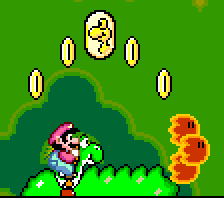
Oppositional Quality: The Importance of American Identity and Gender in Twin Peaks
part one
At face value, much of David Lynch’s television series Twin Peaks may easily be classified as cheesy melodrama. The series after all revolves around somewhat caricatured figures and countless love triangles, accentuating any rise or fall in emotion with several repetitive orchestral motifs. Beyond this cheesiness however, positioning itself in direct opposition to any of its generic cohorts, the show offers viewers something ideologically above and beyond typical mainstream programming. One of the items that makes the series remarkable is its ability to incorporate standard features of popular mainstream media while at the same time opposing the same melodramatic structure it recreates. Most important in Twin Peaks’ critique of and opposition to standard television are the concepts of gender and American identity: these areas will provide the focus for this paper. By examining the specific roles of Dale Cooper, Laura Palmer, and several other characters, analyzing key scenes between them, and relating these significances to the overall impact of the show, this study will discuss the series’ take on gender and identity and how this differs from other common examples of standard television.
Standard Programming, Identity, and Gender
Clearly there are no shortages of stereotypical characters in Twin Peaks; many of these such characters are what add real comedy and lightheartedness to an otherwise hauntingly serious show. The most obvious examples of common, American prototypes are seen in three of the male townsfolk of Twin Peaks, Sheriff Truman, Benjamin Horne, and Dr. Hayward.
In almost every sense, Sheriff Harry Truman embodies everything possible about male identity and masculinity: he is a man of the law, wears a cowboy hat, shows physical strength, and drives a hefty sport utility vehicle. Though more of a strong, silent type, Truman’s position as an American male revealed by his authority and masculinity stand in direct contrast to his deputies (most notably the weepy Andy Brennan). Though weakness and vulnerability is exploited through personal relationships both in and outside his role as sheriff, Truman’s character is able to remain true to the icon of the American male authority figure by displaying potent sexuality through his courtship with the exotic Josie Packard.
Benjamin Horne is also an example of masculine power within the community, but in a much different way. A shady entrepreneur, Ben Horne has controlling interest (in more ways than one) in half the town. Rather than being portrayed as a glamorous fat cat, Ben is shown to be an insensitive, sleazy buffoon who is not above such things as hocking into his own fireplace in front of his attorney. His control over material defines him, thus characterizing him as a successful citizen having flourished through capitalist wealth and greed (American, much?)His masculinity is later revealed to be equally powerful through a insatiable sexuality, much more openly manifested than that of Truman. With extramarital escapades stretching from Catherine Martell to the hospitality girls at One Eyed Jack’s, Ben Horne, like many infamous icons before him, is a man driven by his desires and is therefore a very typical character.
Also a stereotypical character is the town doctor, Will Hayward. Throughout the series Doc Hayward is shown as a calm and thoughtful man who, like Sheriff Truman, is well-regarded by his townspeople. His identity is shaped mainly by his function as doctor and family man. He holds a legitimate, professional job, makes a comfortable living, and has intelligent, well-behaved children. That said, Doc Hayward’s existence on the show is not at all trivial or unimportant, but his position as doctor and good-natured patriarch is a comfortable one within American television: Hayward is the good doctor.
The effect these prototypical males have on Twin Peaks overall is to seemingly establish a few familiar anchors with which viewers will readily identify. All three examples are together masculine and powerful, yet eventually many of the show’s most crucial moments involve these characters only indirectly and instead focus on a less-traditionally powerful character like Cooper, Leland Palmer, or Laura.
Very interesting choices are made with several women's characters, even before we address Laura Palmer herself. We definitely see women in marginalized roles who make little difference to the show’s narrative (i.e., Mrs. Hayward, Mrs. Horne, etc.) together with women we know will matter a great deal as the show progresses (i.e., Laura, Sarah Palmer, the Log Lady, Josie). Though there are only a few women who hold real power within the community, the ones shown early on are significant. Josie Packard, a wealthy, widowed immigrant controls the Packard Sawmill while the unnamed doctor in the hospital who treats Ronnette Pulaski is a minority woman as well. These characters can be seen as subtle, opposing forces for their white male counterparts, providing a radically redefined version of what an American woman’s role is about (although in Josie’s case, still a sexualized one). Catherine Martell and Nadine Hurley are also shown to be women of power within their own households, but serve mainly as emasculating nags, although not without a few added quirks (as in drape runners).
Overall, there seems to be a balance between the common and the uncommon among the secondary male and female characters of Twin Peaks, initially providing figures who do not extend too far outside the norms to which mainstream viewers have become accustomed. Examples of standard programming which generally prefer to work within the established guidelines of patriarchal culture, emphasizing masculine power like those embodied by characters symbolizing institutions of law, capitalist gain, and medicine, tend to place the highest value upon the male-dominated system and keep women in mostly subordinate positions. Where Twin Peaks is able to deviate from this set of conventions and oppose them however, is best seen through the exchanges between detective and victim (Coop + Laura).








































